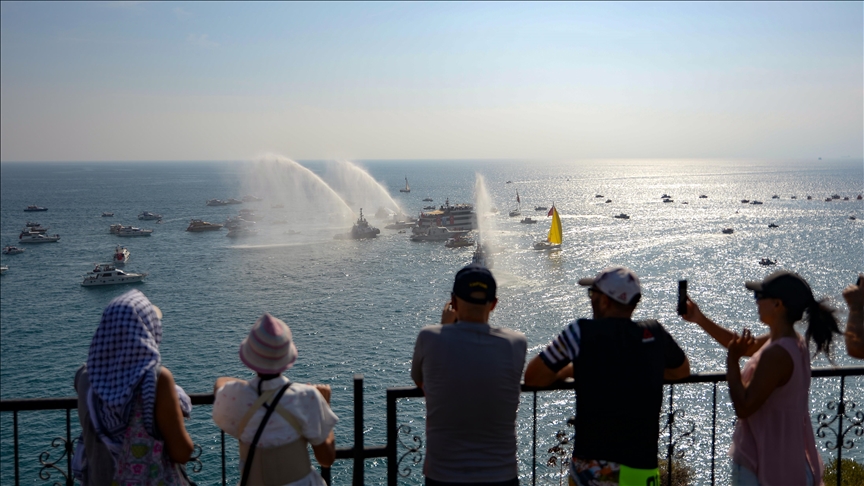US awaiting Ankara’s reply
The last time Ziyal had visited Washington he had been received by key figures such as Vice President Cheney, Defense Secretary Rumsfeld. This time he will be able to see only Assistant Secretary of State Mark Grossman and probably someone else at the same level. Nothing else, as far as we know, for the time being.
This is not merely a protocol problem. This shows the place the U.S. assigns to Turkey. In the future this may change but for the time being Washington has adopted a wait-and-see attitude.
They want to hear what Turkey intends to do and how. In the short run their efforts will be limited to damage control, to the clearing of the debris caused by the "quake", to ensuring that the "buildings" that have survived will remain erect.
Things they don’t want
America has made it crystal clear the things it does not want Turkey to do. From what I gathered from the American and Turkish officials I have talked with and from the observers that have been closely following the way Turkey-U.S. relations unfold, one issue comes to the foreground:
The Bush administration does not want the Turkish prime minister to have so close a relationship with the Iranian officials that they would pose for photographers hand in hand.
The Bush administration does not want Turkey to believe certain doubts and worries expressed by Deputy Chief of Staff Gen. Buyukanit. It does not want speeches of this kind to be made.
Things they want
In fact, Americans are trying not to say what they do want from Turkey. They say Turkey is free to conduct any kind of policy it likes. However, at the end of the day, they do not conceal their expectations.
Iran-Syria is first on the line.
Washington will probably not resort to arms but it is not hiding that it is going to squeeze Iran’s throat. What Washington wants to know is what kind of policy Turkey would follow in such a case.
Will the Turkish politicians say, "Iran is our neighbor. We must protect them against the U.S."? Will the Turkish military see Iran as an alternative? Will they give Iran that message during their talks with the Iranians?
Or will they explain to the Iranians Washington’s approach — albeit less vigorously than the U.S. itself would?
To give an substantial example I can cite the speech Abdullah Gul made at the Islamic Conference, the way he said that Islamic countries should undergo a change and keep in step with modern times.
This is exactly the kind of approach America wants, the kind of approach it expects Turkey to have.
In fact, Powell’s writing a letter to congratulate Gul was not meant to show that bilateral relations were improving. It was meant to underline the message, "This is what we expect from you."
Here is a another question, one that concerns Iraq and northern Iraq. Will Turkey assess the developments in that country only from the standpoint of security or focus on economic and political cooperation?
To sum up, basically, the same question is being asked:
"Do you view the world like we do and intend to act together with us or are you going to shape your own world?"
They will want to learn from Ugur Ziyal how Ankara views the peace process and what it plans to do in order to persuade organizations such as Hamas and the Islamic Jihad and the Palestinians to agree to enter into the peace process.
They will try to find out what Turkey has on mind regarding Cyprus and whether it wants a solution or not.
Most importantly they will try to see how insistent the Turkish government is on the EU issue.
At the end of the day a certain picture will emerge. It will be seen where Turkey wants to place itself under the new world conditions.
Regardless of what happens, Ziyal’s talks in Washington will clarify the situation on many issues — or leave Washington a little more confused that it is now.
The road map for Turkey-U.S. relations will be redrawn, starting from point zero or the crossroads will be all the more obvious.
Would Turkey part ways with the West? If not, how is the way we view the U.S. and the EU taking shape? In tomorrow’s article I will share with you the answers I have found to these questions in Washington.



